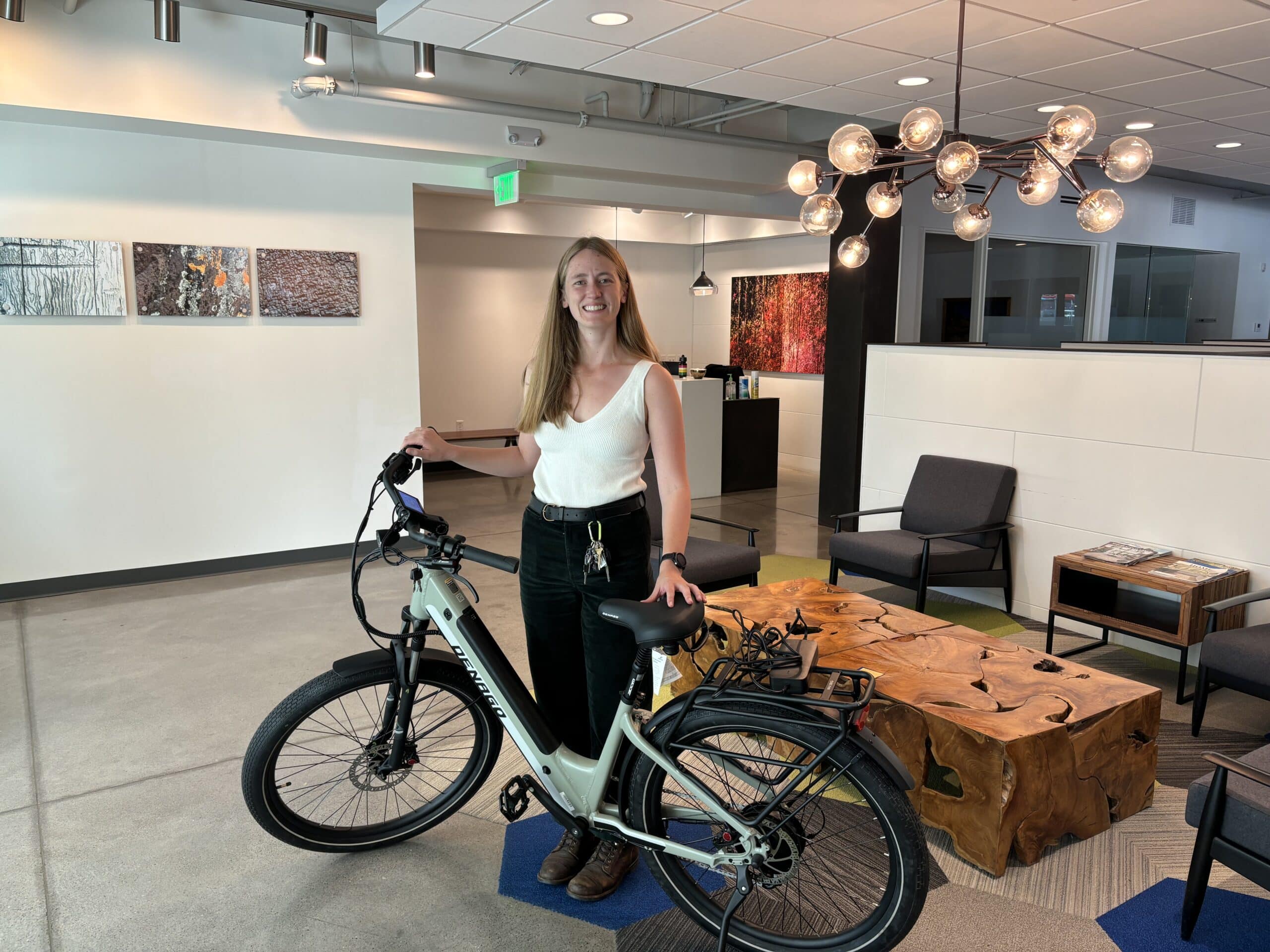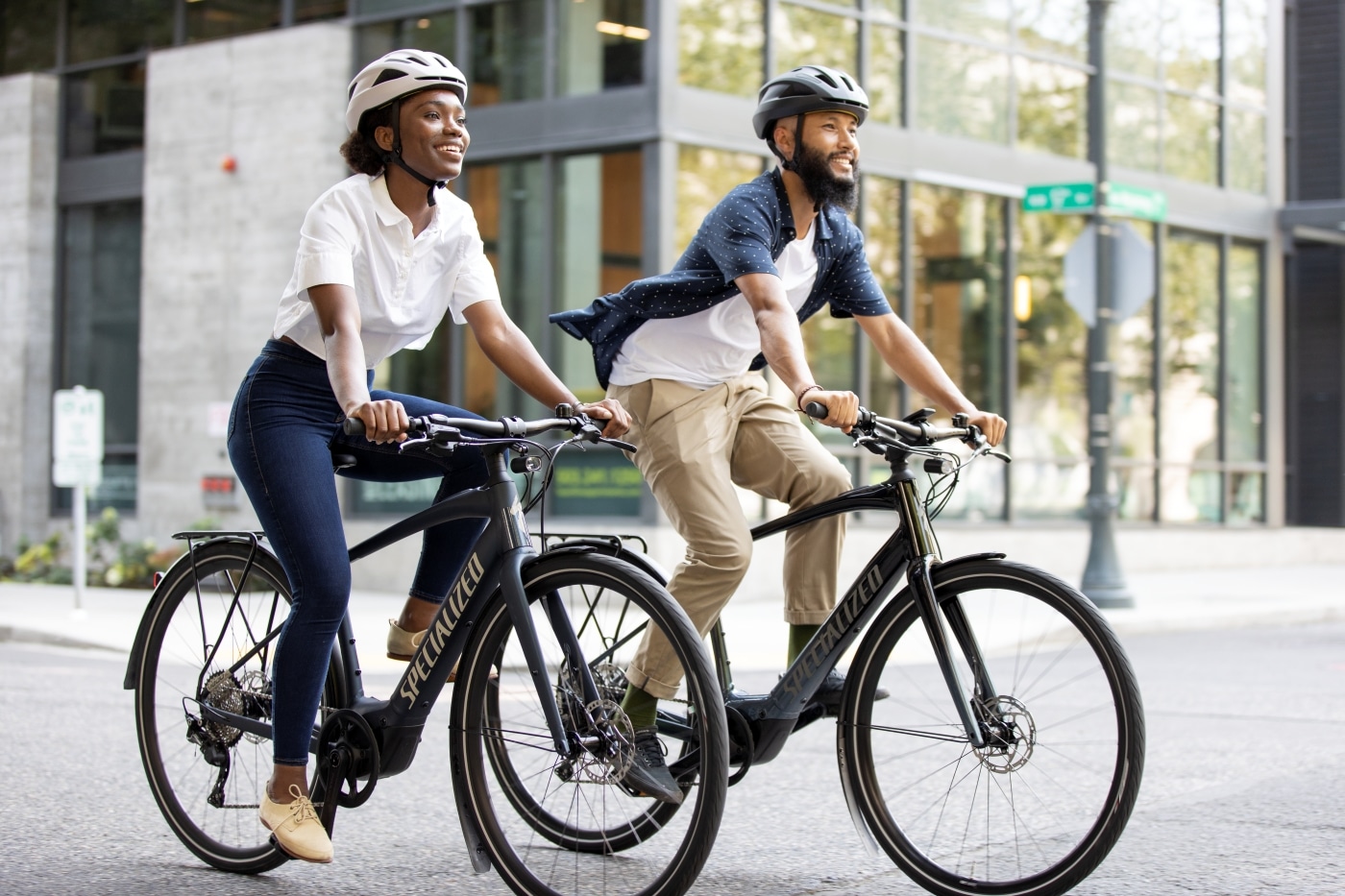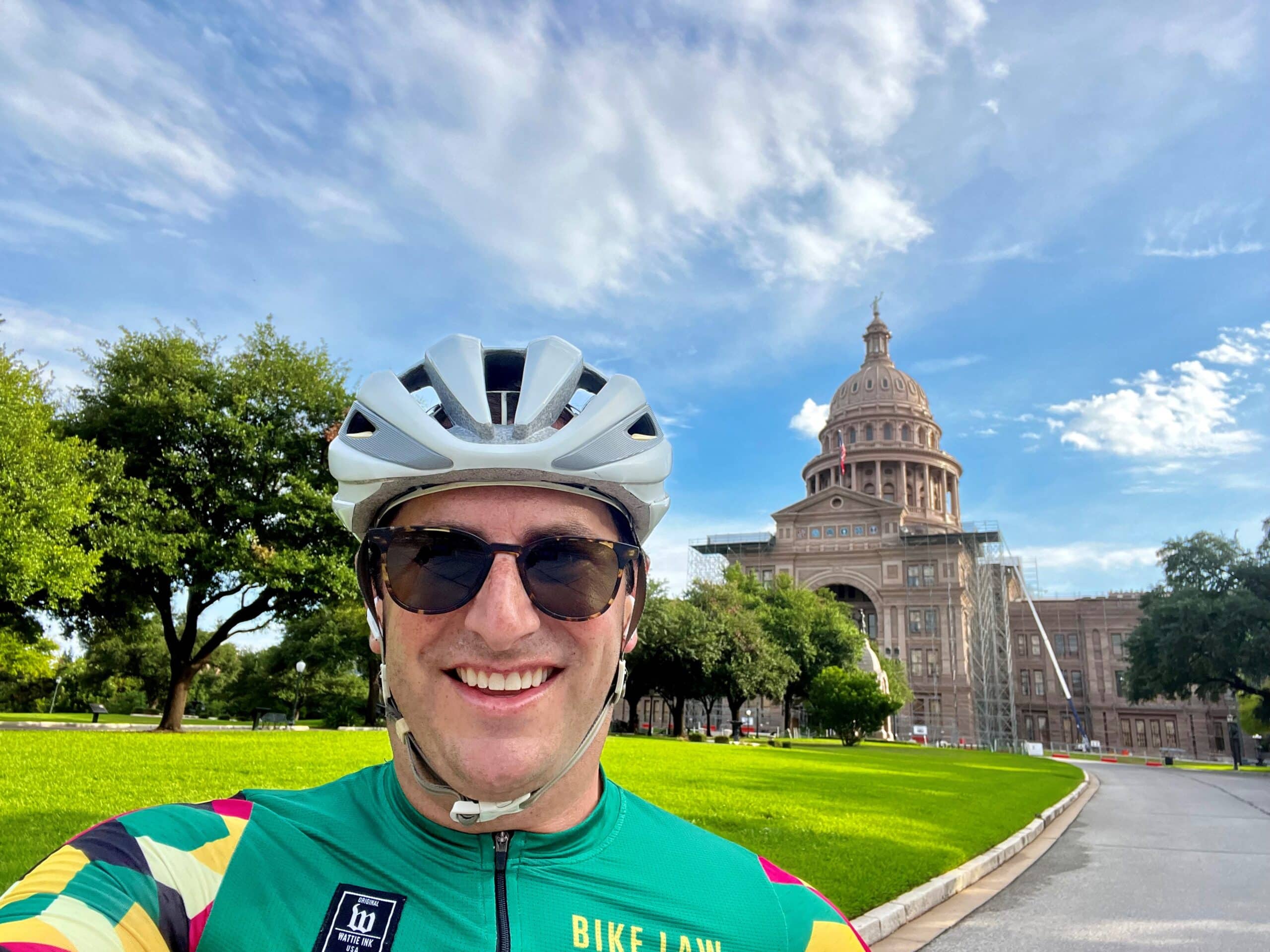A few nights ago I/Ann was the speaker for the Boone Area Cyclists’ annual meeting. It was amazing! But I knew that about the club before I went there. One of the things that is so impressive about the Boone Area Cyclists is that they seem to have equally enthusiastic contingents of commuters, roadies and mountain bikers. (And definitely some cross racers, as I learned after the meeting). They did a pretty good job of filling the auditorium at Watauga Medical Center, on a cold evening with snow and ice still on the roads. For a town of 15,000 permanent residents, that was no small feat.
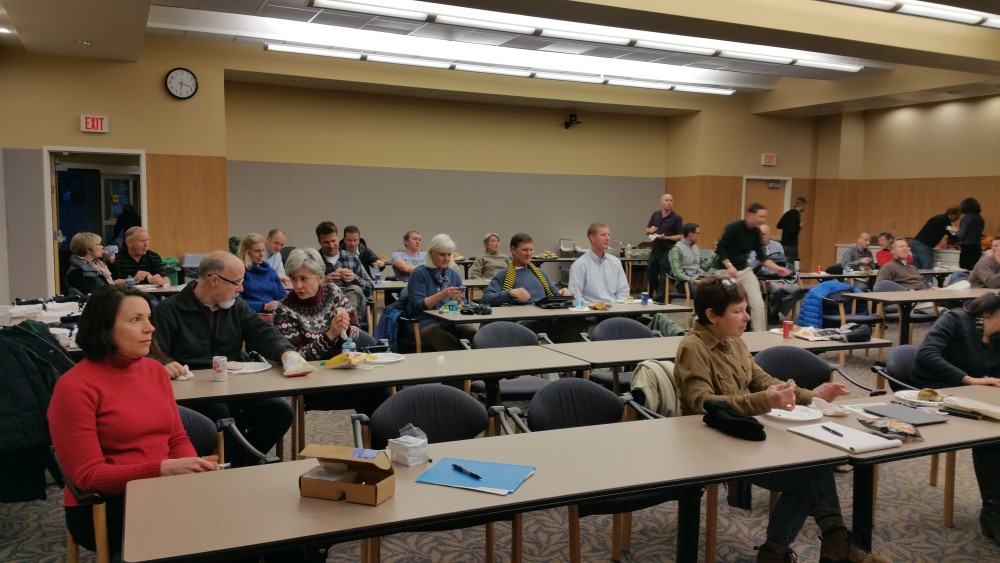
The club conducted its business before I got up to speak and it was clear to me how active this group is – from building trails and negotiating with the county for new ones, to running youth and collegiate development teams. It seemed like everyone at the meeting had a project or activity they were working on.
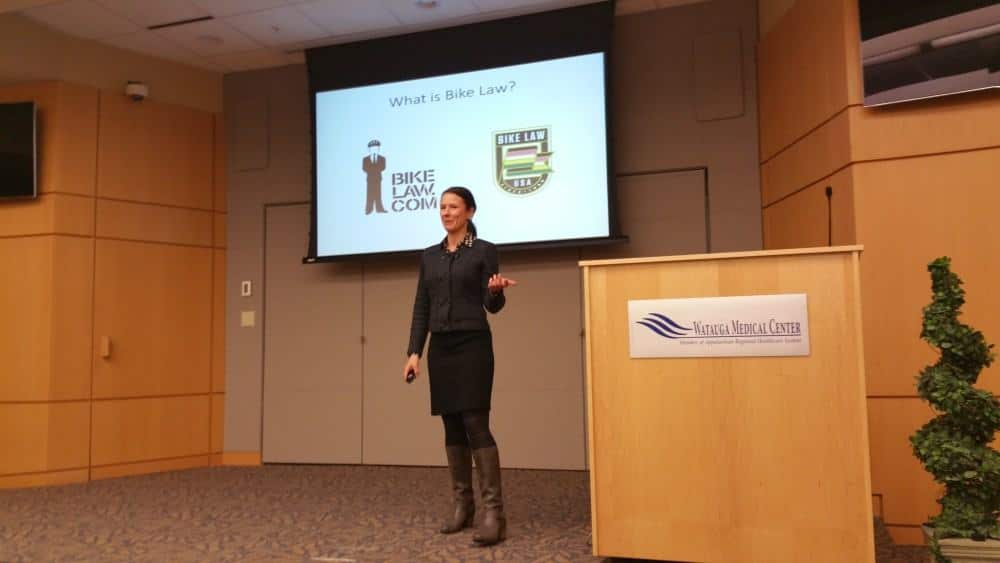
I’ve been to other groups like this – the Blue Ridge Cyclists come to mind, as well as the Carolina Tarwheels in Hillsborough and the Cape Fear Cyclists in the Southeastern part of the state. Each is a little different, but they all have some things in common – they are consistent, active and have been around a long time. All representing fairly small constituencies, yet all growing bicycling in their areas. It got me thinking – why is it that some communities are so successful in forming and maintaining these groups, while others see repeated efforts die slow and painful deaths?
Since I live in Charlotte, I can’t help but think of our city as an example. For years, the Charlotte Area Bicycle Alliance dominated the advocacy front. But there were problems, including very little communication with the public, so that donors and potential members asked, why am I putting my money into this group? What is it even doing? And as technology and social media advanced, the silence became louder and louder. Interest dwindled, was reignited, dwindled again and the group all but fell apart. Was it lack of leadership? Lack of community interest? Lack of funds? Why can’t a city of 800,000 people come up with enough enthusiasm to generate the type of work the Boone Area Cyclists is accomplishing?
Some of those questions will soon be answered. Recognizing that bicycling makes communities better, the Knight Foundation recently committed $600,000.00 to bicycling in Charlotte. And the Foundation began implementing a plan methodically and professionally, by holding a series of meetings of bicyclists and bicycle and business community leaders to gather information. At those meetings, people from all walks of cycling and the business community showed up and we learned that community interest is not a problem. And thanks to the Foundation, there will be money to get started. Based on our ideas, the Foundation will put together goals and a mission statement and get to work.
Another answer is that there are groups in Charlotte getting things done. There are many groups, as a matter of fact. The Tarheel Trailblazers and Dirt Divas meet every month, help run races, build trails and do other community work. The Charlotte Trips for Kids affiliate is very active. Pam Murray, Charlotte Spokes People, and affiliates are organizing rides and events and bringing cycling and commuting to everyone. Team Reeb is a club organized on the concept that a Sunday road ride should be run and accessible for everyone from beginners to racers and that everyone should come together for a beer at the end. Charlotte B Cycle organizes fun community cycling events. Nearby, Mooresville Area Cyclists leader Kevin Elder is doing enough organizing and communicating for 10 people. Transportation Choices Alliance is looking at bicycling under the broader umbrella of general transportation choices. And, of course, Jeff Viscount, www.weeklyrides.com founder, keeps us all informed of everything. There are more: including our own new Uptown Cycles-Bike Law women’s only team under the umbrella of 36th Street Racing. And many more…
This year Charlotte is hosting North Carolina’s annual bike summit. Community leaders are coming together to organize and support this event.
So Charlotte has a lot of bicycle activity going on. What we’re lacking here, and what other communities like Boone has, or, to look outside North Carolina — Charleston, New Orleans, Toronto, Washington D.C., Lansing, and Tempe, to name only a few examples, have — is an ongoing united voice. Looking at these other groups, they seem to contain common ingredients that lead to such unity: strong leadership, well-defined goals and a plan with measureable benchmarks, strong communication skills and an active base.
Although some of us want to ride to work and to get groceries, some want to ride trails from gnarly single track to leisurely greenways and some want to ride very fast on the road (and some of us want to do all of the above), we all share a love of riding our bikes. And on important issues that affect us all, we should find a way to speak as one. I am hopeful that Charlotte will get it right.
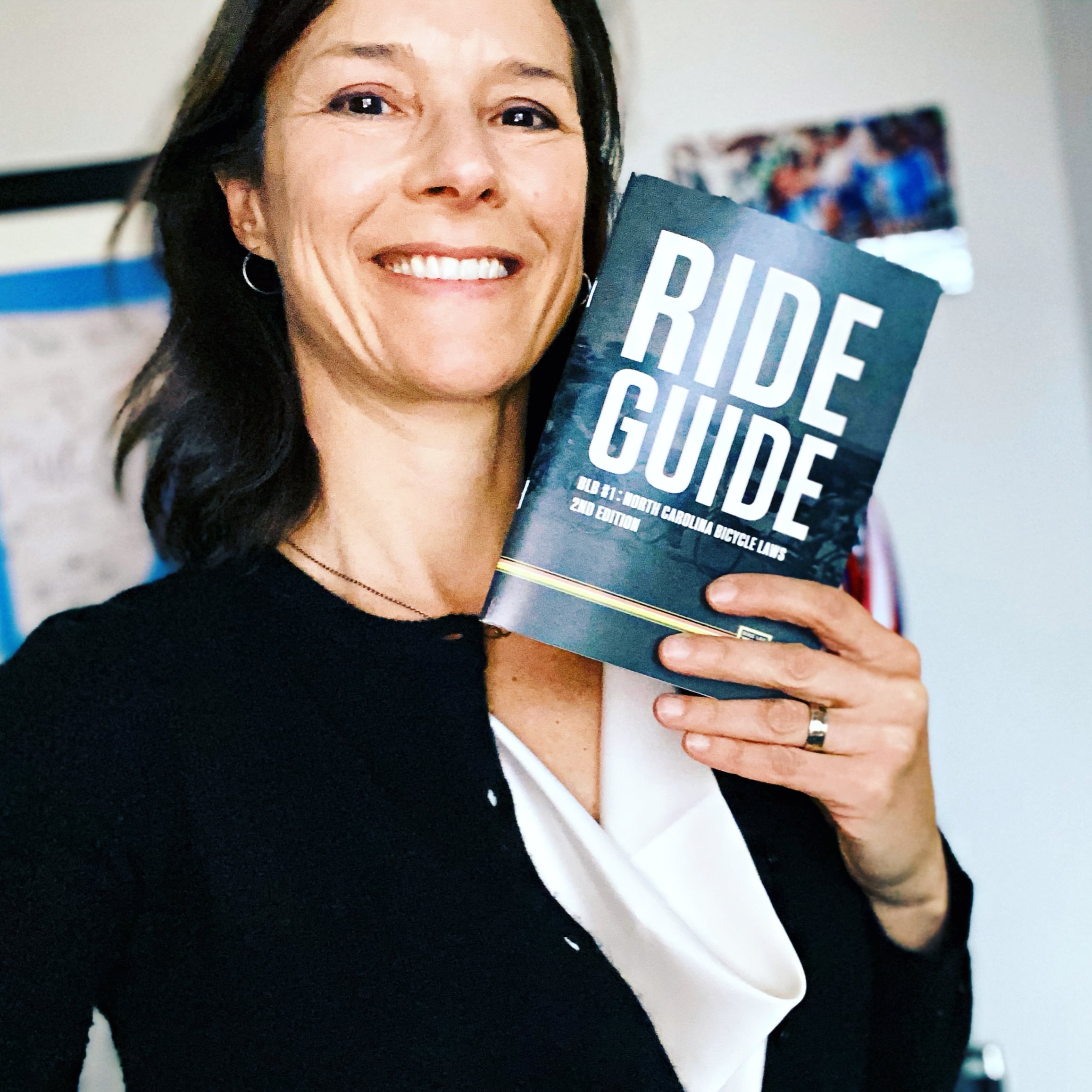
North Carolina lawyer and Bike Law founder, Ann Groninger, has advocated at the state level on behalf of bicyclists in North Carolina for over 15 years. Ann has offices in Charlotte and Durham and has helped bike accident clients in Asheville, Raleigh, Durham, Greenville, Wilmington, Fayetteville, and throughout the state. Read more about Ann on her bio page.
